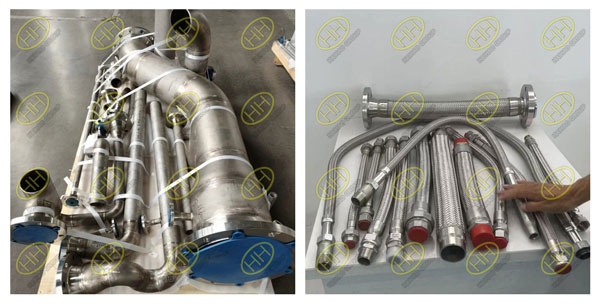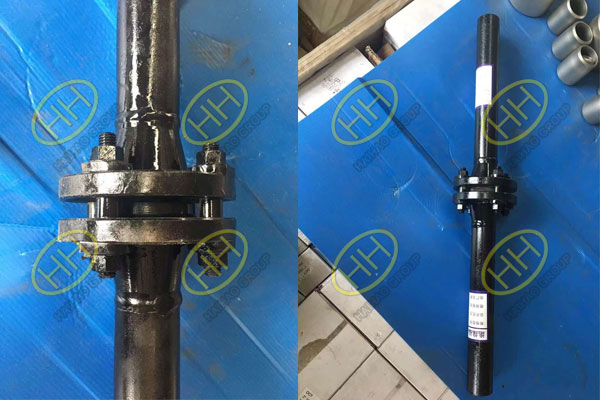Precision and excellence in flange connections: guidelines for optimal performance
Flange connections play a pivotal role in various industrial applications, demanding a unified standard to ensure reliability and efficiency. Currently, there are two major standard systems governing pipe flanges internationally: the European pipe flange system represented by Germany’s DIN (including the former Soviet Union) and the american pipe flange system represented by ANSI. Below are some key guidelines to achieve precision and excellence in flange connections:
Alignment and bolt hole deviation: Flange connections should maintain alignment along the same axis, with the deviation of bolt hole centers not exceeding 5% of the hole diameter. Bolts should freely pass through the holes. Connecting bolts must have identical specifications, the same installation direction, and be symmetrically and uniformly tightened.
Avoidance of unequal thickness shim washers: It is prohibited to use shim washers of different thicknesses to compensate for flange non-parallelism. Dual washers should not be used. When joining large-diameter washers, they should not be butt-jointed with flat ends but rather configured in a staggered or labyrinth form.
Spacing between bolts and flange faces: To facilitate the installation and disassembly of flanges, the spacing between fastening bolts and flange faces should not be less than 200 millimeters.
Symmetrical and Intersecting bolt tightening: When tightening bolts, a symmetrical and intersecting approach is recommended to ensure even stress distribution on the washers.
Coating requirements: For bolts and nuts operating under conditions such as temperatures below 100℃ or above 0℃, outdoor exposure, atmospheric corrosion, or corrosive media, a coating of molybdenum disulfide, graphite oil, or graphite powder is advised. This is particularly applicable to stainless steel and alloy steel bolts and nuts.
Treatment of metal washers: Metal washers made of copper, aluminum, soft steel, etc., should undergo annealing treatment before installation to enhance their performance.
Requirements for buried flange connections: Direct burial of flange connections is not permitted. Flange connections for underground pipelines should incorporate inspection wells, and if burial is unavoidable, corrosion prevention measures must be implemented.
In pursuit of precision and excellence, adhering to these guidelines ensures the integrity and longevity of flange connections. For industry-leading products and solutions, turn to Haihao Group, your reliable partner in pipeline systems. Stay informed with Haihao Group as we closely monitor domestic steel market trends and provide cutting-edge solutions for your pipeline needs.



